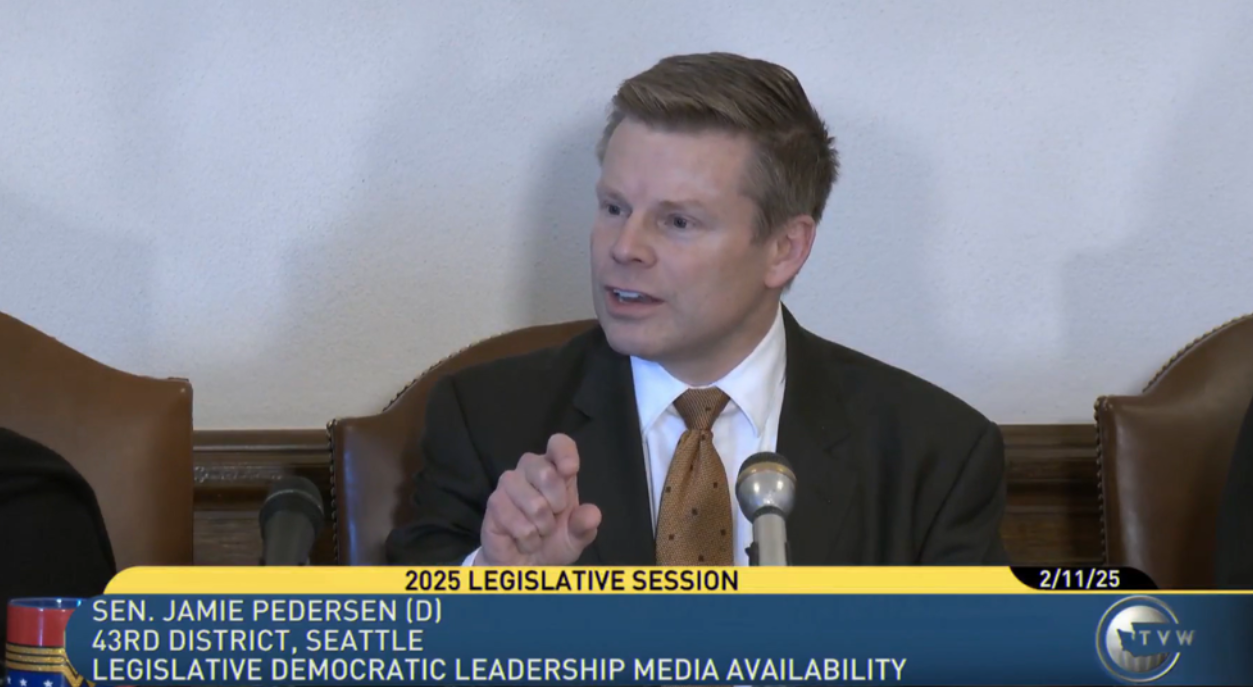Related Articles
-

Governments should protect workers, end cozy relationship with political allies
-

Senate Majority Leader Jamie Pedersen thinks Washington is a great place to do business and then quotes a report that ranks Washington 42 out of 50.
-

Will Washington state’s higher capital gains tax drive businesses away?
The Hill today published a story saying that Julius Genachowski, the recently appointed FCC Chairman, will support "net neutrality" requirements and go after any company that violates its tenets.
For the uninitiated, "net neutrality" is the principle that Internet Service Providers (ISPs) have no right to prioritize traffic as it moves through their service pipes. Basically, if a doctor is downloading health information for a patient or a college student is downloading an illegal copy of Gears of War, the data is sent as first-come-first-serve. There is no prioritizing the health information or bumping down the gamer's data.
Last year, Comcast got nailed for slowing down some users' traffic to sites that are notorious for sharin! g illegally copied material. Even though what the large ISP did was not actually illegal, it set off a firestorm amongst the technoratti as many thought their own ISPs were slowing down their connections as well (there have been a few other minor examples, but nothing so large as the Comcast one).
Backers of net neutrality want all data to flow freely over the bandwidth pipes and don't want ISPs to govern at all the content or prioritization of said content. On one hand I totally agree; ISPs should not block access to any legal website or content whatsoever.
However, the notion that all data must be treated as neutral raises concerns. Admittedly, ISPs largely brought this upon themselves when, back in the 90s, the business model started as more of a buffet-style platform -- pay $25 for unlimited dial-up internet access. Nowadays, as user demand skyrockets, ISPs are having trouble keeping up, even though they spend billions each year in network expansi! on.
So, Comcast, Verizon and others still find th! emselves having to offer essentially unlimited Internet usage for about $50 a month, even though the 56Kbps is dwarfed by many of the current service levels ranging from 1.5Mbps to 15Mbps. You can find higher service levels available for higher costs -- but those are largely for commercial customers.
The core of the net neutrality principles include "keeping the Internet fair, free and open to all Americans." But the concept that the net should be free and fair and open is misleading. First, you should pay for access, and if you live in remote rural areas, expect to have to pay more than an urban consumer -- it's expensive to bring utilities out to customers who reside miles away from nodes. The expectation that your price should be "reasonable" simply because your rural house and an urban customer receive the same service is based on opinion and not economic reality.
Second, net neutrality is creating a solution to a very small pr! oblem. The Comcast example is one where an ISP saw that a very small number of their users were consuming far more bandwidth than anyone else and simply slowed down their connections to these P2P networks where illegal sharing is common. They did not disconnect the users, nor did the company block total access. If I am trying to stream legit content or download legal material, but my connection speed is slowed because my neighbor is hogging all the bandwidth, I'm going to look for a new ISP and badmouth my current ISP -- Comcast recognizes that.
And lastly, what does "open" pertain to? It is interesting that backers of net neutrality want to keep the internet open through increased regulations. In this case, we are heading towards a time when the Internet is treated as a public utility like water or sewers and that access must be guaranteed for all and most ! likely subsidized by taxpayers.
If ISPs are going to be fo! rced to treat all users and data exactly the same, this will harm future improvements to the networks. Both consumers and businesses will also be deprived of the opportunity to pay more for higher levels of service. Airlines have tiered service, so do cable TV providers. I can purchase bottom shelf cereal or the name-brand more expensive kind. I can skimp on tires for my car or buy visually appealing ones with more features that set me back a few hundred more.
Our lives are filled with choices of paying more for better services or higher quality products, or saving money by going with less expensive choices. But that's not good enough for the net neutrality folks and that's a shame and it could hurt us consumers in the future.
